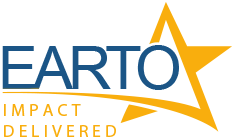05 / 12 / 2022
Joint Statement on the MGA IP Provisions of the EIC under Horizon Europe
Call for the Commission to reverse the damaging and complex Intellectual Property provisions of the EIC Pathfinder and Transition schemes
Ahead of the European Innovation Council (EIC) Summit, research and innovation organisations voice concerns regarding the Intellectual Property (IP) provisions for EIC-funded Transition and Pathfinder projects. As they currently stand, the provisions create serious obstacles to the knowledge valorisation services undertaken by research-performing organisations. This poses serious threats to the exploitation of research outcomes.
The current IP provisions do not consider the complexity of knowledge transfer, assuming that researchers would be best placed to exploit their research outcomes. They ignore the fact that, in general, many researchers do not systematically have the required resources and know-how to engage in knowledge valorisation. That is why researchers normally rely on knowledge transfer offices that provide the specialised and professional support to maximise the economic and social impacts of research outcomes.
Moreover, the present EIC IP provisions contain legal uncertainties which add complexity to how research-performing organisations manage their intellectual assets. This creates unnecessarily high administrative burdens. These divert the institutions’ resources away from actual knowledge valorisation activities and limit the further development of knowledge valorisation capacities in research-performing organisations. Fragmenting the rights of exploitation of IP between several actors will also drive away investors who generally only invest if an organisation has exclusive IP rights.
The EIC IP rules presently conflict with regional, national or institutional rules. We are concerned that EISMEA has not yet acknowledged this issue and proposed any solution to our concerns. Consequently, we fear that research-performing organisations may divert their attention away from the EIC as they see its instrument as unsuitable to their needs. Such an outcome would severely compromise the effectiveness of the EIC in accelerating breakthrough innovation in Europe, which relies on the uptake of EIC instruments of both innovative companies and the research-performing organisations that produce the knowledge underpinning and enabling these innovations.
The EIC IP provisions are not only counterproductive and hinder knowledge valorisation. They are also not workable. The signatories of the joint statement strongly recommend that the European Commission implements in the EIC the same IP provisions as in the rest of Horizon Europe. We remain available to provide additional input for EU institutions to ensure a successful implementation of the EIC.
Jan Palmowski, Secretary-General of The Guild: “The EIC’s potential for European innovation can only be fully realised if it responds to the needs of innovators and the institutions supporting them. We need the EIC to listen to our concerns, accept our legal constraints, and recognise the complexity of delivering innovation in an academic setting. It is critical that the EIC works with us to support academics in their creativity, and institutions in the support structures they provide to enable academic innovators.”
Michel Neu, Chair of EARTO WG Legal Experts and Head of Intellectual Property and Valorisation, CEA (France): “The new specific IP provisions in the EIC Pathfinder and Transition projects go against international best practices for the management of IP and technology transfer between research organisations and the economy. For RTOs, these provisions not only disrupt their technology transfer activities but also their internal staff management rules. Returning to the proven international best practices is essential to reconcile the interests and incentives of research organisations, including RTOs, and their researchers.”
Laura MacDonald, CEO of ASTP: “Our support of the joint statement is a result of wide consultation with our network of Knowledge Transfer Professionals who anticipate that implementation will lead to more problems rather than solutions. We believe that the proposed EIC terms are unworkable and fly in the face of national legislation on employment relations as well as current EU policies to support capacity-building of effective knowledge transfer mechanisms. However, we look forward to working together with EIC to identify additional ways to strengthen the effective commercialisation of research results.”
Signatories: Association of European Science and Technology Transfer Professionals (ASTP), Aurora Universities Network (AURORA), Coimbra Group, European Association of Research and Technology Organisations (EARTO), EU-LIFE, The Guild of European Research-Intensive Universities (The Guild), IDEA League, League of European Research Universities (LERU).
Read the full joint statement here

